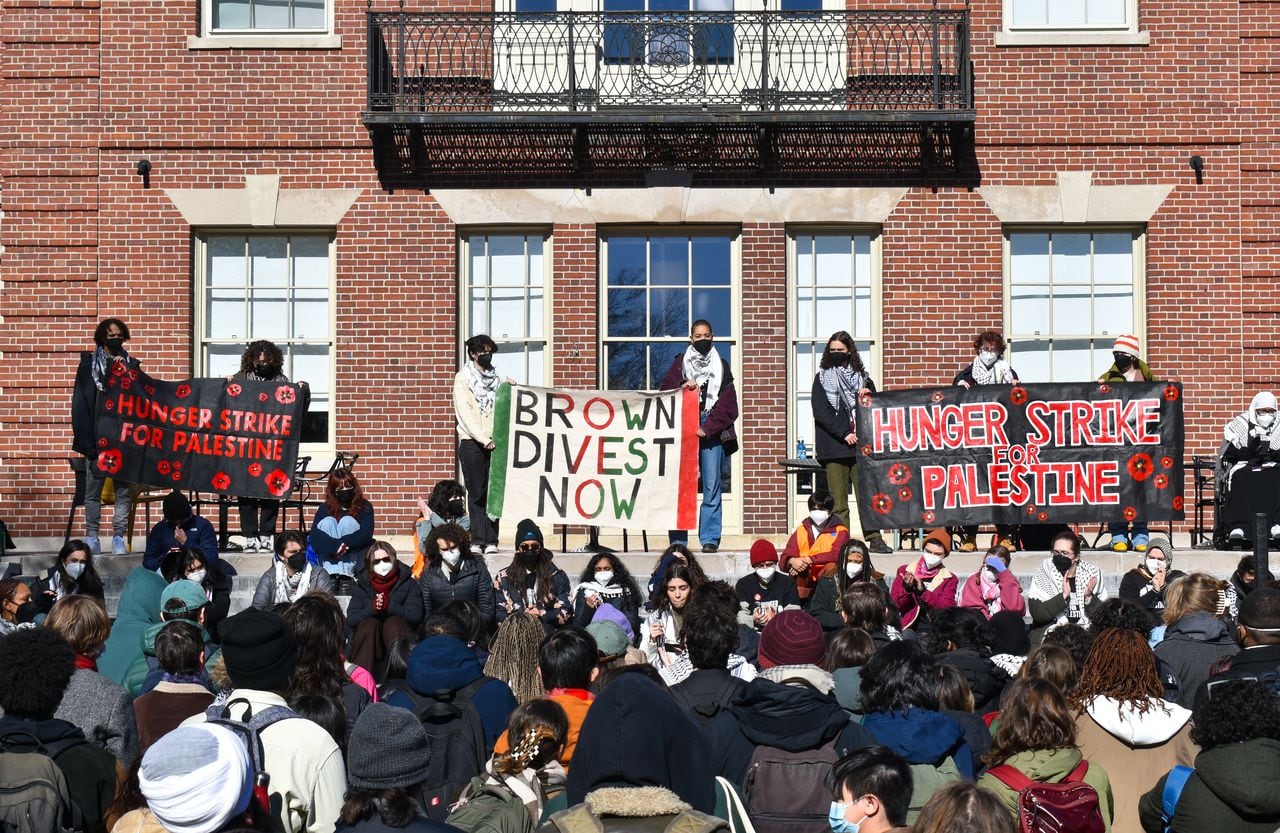Brown students starved themselves for 8 days. This is how theyâre redefining Israel divestment in the age of Instagram activism
Nineteen Brown University students called off a hunger strike Friday after the Corporation of Brown University refused to hear or consider an updated divestment proposal.
The proposal calls on the university to sever ties with “companies which profit from human rights abuses in Palestine,” and builds on a 2020 report that recommends the university divest its $6.6 billion endowment from some of the world’s largest military and defense companies, including Boeing, RTX (formerly Raytheon and United Technologies) Northrop Grumman.
The strike concluded two days before intense Israeli air strikes in the Southern Gaza City of Rafah killed more than 100 people Monday evening, according to the Palestinian Red Crescent Society. Approximately 1.3 million civilians are currently displaced in Rafah, which was Gaza’s last designated safe zone.
“The situation in Palestine is unimaginably dire and our university remains complicit,”Ariela Rosenzweig, one of the 19 hunger strikers said. “We have to continue doing everything we can.”
Rosenzweig and 18 others pushed through exhaustion and fatigue as they anticipated presenting the divestment proposal to the Brown University Corporation, the school’s highest governing body, for a vote Thursday. By then, the hunger strike had grown to include hundreds of students who rallied outside the building where the corporation meeting was held. Some students showed their support for divestment by fasting temporarily, staging protests outside other campus buildings and occupying the school’s campus center.
But, the corporation ultimately rejected the calls Friday, holding firm in keeping its current investments in place.
University President Christina Paxson refused to move on the proposal, denouncing it as an attempt to “use the endowment as a tool for political advocacy on contested issues.”
“I think all of our students agree with that,” Niyanta Nepal, one of the hunger strikers said to Reckon. “We think investing in the Israeli occupation is inherently political. That’s exactly why they have to divest. In order to stay true to Brown’s academic mission, they must must must divest.” she said.
Paxson vowed not to bring a resolution to the February 2024 corporation meeting or future meetings, and suggested students present their proposal to ACCRIP’s successor, Advisory Committee on University Resources Management.
Paxson previously refused to adhere to the report in 2021 saying “the recommendation did not adequately address the requirements for rigorous analysis and research as laid out in ACCRIP’s charge, nor was there the requisite level of specificity in regard to divestment.”
But students have remained in support of divestment, especially in light of Israel’s current assault on Gaza, hunger strikers said. In December, 41 students from Brown Divest Coalition were arrested during a sit-in demanding the school divest its endowment from Israeli military
occupation.
And, hunger strikes continue to be used as a nonviolent form of protest against U.S. aid to Israel and the ongoing occupation of Palestine. In November, activists launched a five-day hunger strike outside the White House to demand a ceasefire in Gaza.
Brown hunger strikers said the University’s inaction will not dissuade students from continuing to push for divestment in the future.
“The answer to ‘What will we do next?’ is what we’re doing now,” Rosenzweig said. “This campus is full of hundreds of people who are incredibly mobilized around the issue of a free Palestine and who understand our university’s complicity. There is no choice ultimately, but to divest and we absolutely will not stop organizing.”
